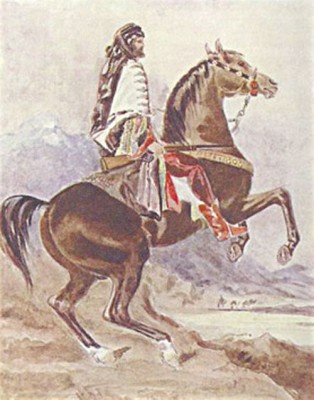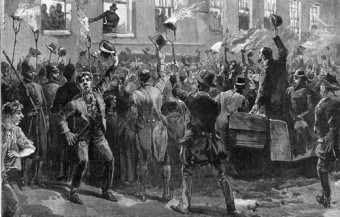Search Results for 'chief secretary'
9 results found.
Was James Hack Tuke the Oskar Shindler of his day?
A surprising rescuer of the Tuke assisted emigration scheme from the west of Ireland came from the London government. After the first group of 1,315 people had sailed from Galway for America on April 28 1882, the Tukes’ emigration fund was practically exhausted. Yet the demand for places grew each day. Now more than 6,000 applications, mainly from the Clifden area, but also from Belmullet, Newport and Oughterard, poured into the Clifden union where James Hack Tuke had his office. While poverty and famine remained endemic in the west of Ireland, people with spirit must have felt that the day-to-day grind was never ending. The threat of another Great Famine was very real. They wanted a new life.
James Hack Tuke and his plan to assist emigration from west of Ireland
The agricultural crisis of 1879, and growing civic unrest, prompted the Society of Friends in England to send James Hack Tuke to the west to inquire into conditions and to distribute relief. Tuke, the son of a well-to-do tea and coffee merchant family in York, England, published his observations in Irish Distress and its Remedies: A visit to Donegal and Connaught in the spring of 1880. In clear-cut language he highlighted the widespread distress and destitution at a time when the British government questioned the extent of the crisis.
The gathering storm
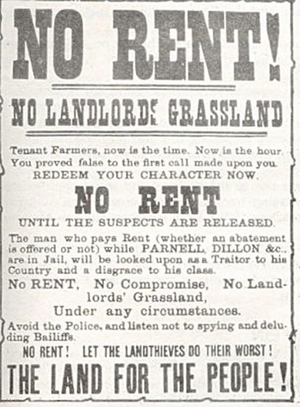
The threat of another famine in 1879, within living memory of the horror and catastrophe of the Great Famine some 29 years earlier, brought renewed terror to the vulnerable tenant farmers in the west of Ireland. This time it was not just the humble potato, but severe weather conditions which devastated crops and feed stuffs over a three year period. Farm incomes dropped dramatically, landlords fussed that rents would not be paid. Whereas some landlords were patient, others warned that evictions would follow if rents were not paid on time.
The Land War: A desperate duel between Parnell and Forster
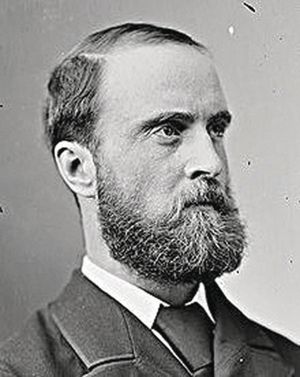
The continued unrest, murders, and large-scale protests as the Land War careered dangerously through the Irish countryside, led at last to some reform. William Gladstone’s Second Land Act of 1881 proposed broad concessions to the tenant farmer. But Parnell, the very effective leader of the Irish Parliamentary Party, was not satisfied. He said that tenants were still vulnerable to rent arrears and poverty resulting from poor harvests. He urged that the Act either accommodate these concerns, or be rejected.
The romance of steam
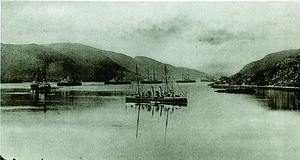
In late October 1890, Arthur J Balfour, nephew of the Conservative leader Lord Salisbury of the time, and recently appointed Chief Secretary of Ireland, went on a walking tour of the distressed districts along the Galway and Mayo coast. Accompanied only by his sister, and local officials who joined them as they passed through different districts, they travelled without police escort. Remembering that it was only eight years since the Phoenix Park Murders* it was a brave gesture. But Balfour was probably the best of them.** He was genuinely anxious to improve the conditions of the area. He had influence in London, and an imaginative grasp of his brief for Ireland. He met and talked with the local community leaders, listened to what they had to say; and sat by the open fires listening to the mná tí.
Exhibition looks at combating poverty in 19th century Galway
The years 1891 to 1923 were among the most important in Irish history, featuring the events that would lead to independence, partition, and the civil war.
Through the glass darkly
In late November 1623, John Donne, Dean of St Paul’s Cathedral, fell ill, probably of typhus, or ‘spotted fever’, as it was called in his day. He was in his early fifties, a widower since the death of his beloved wife Anne in 1617, and the father of four daughters and a son, who carried his father’s name.
